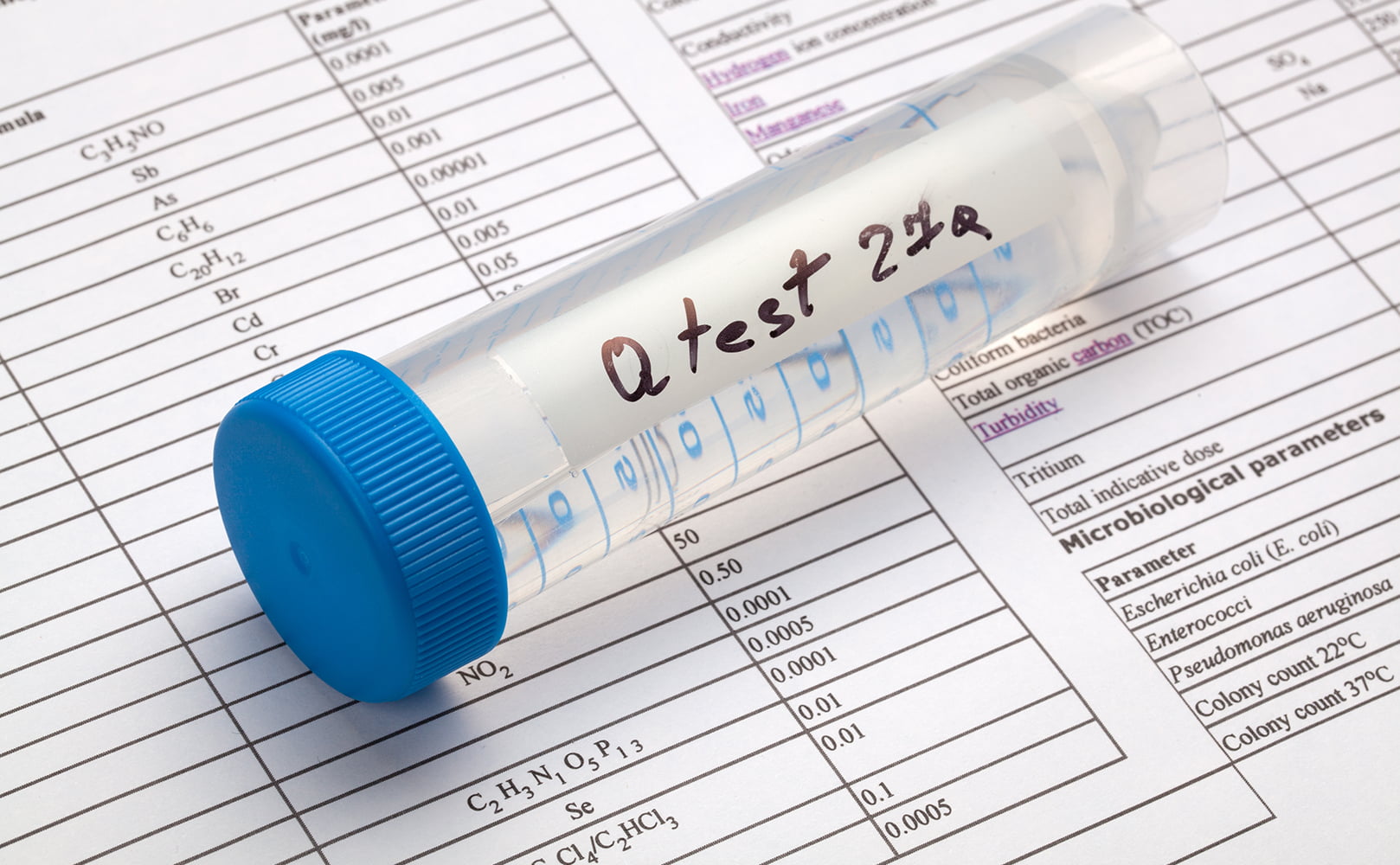Are Water Filter Pitchers Effective?
Written by: Gene Fitzgerald // Last Updated: Sep 7, 2023
This page may contain affiliate links. If you buy a product or service through such a link we earn a commission at no extra cost to you. Learn more.
Unless our water at home begins to taste bad or smell awful, most of us rarely take notice of it. But once we do, we look for the most convenient ways of filtering, and water filter pitchers offer one such way.
They come cheap, are easy to maintain, and above all, eliminate aesthetic water issues.
Besides, water filter pitchers give purified water in no more than 10 to 15 minutes.
But unfortunately, many are not powerful enough to remove dangerous contamination.
Some, however, are very well capable of eliminating heavy metals, disinfection byproducts, pesticides, and much more…
Key Takeaways
- Water filter pitchers can be effective. If you purchase a high-quality model it will remove a broad range of contaminants.
- However, a cheap filter pitcher might only reduce chlorine content in an attempt to neutralize bad taste and odor.
- Tip: Check products for NSF testing/certification.
Are Water Filter Pitchers Effective?
Water filter pitchers hold a good reputation. They offer a straightforward way of purifying water improving its taste and smell.
However, sometimes, that’s all there is to a filter pitcher. Several models are just not solid enough to eliminate hazardous chemicals, metals, and other organic and inorganic compounds from your home water.
That said, if you go for a premium water filter pitcher like the Clearly Filtered, it’s built to eliminate more than 300 different water contaminants, including arsenic, lead, chromium 6, PFAS, chloramine, TTHMs, mercury, VOCs, semi-volatile compounds – you name it.
So, are water filter pitchers effective? Yes and no. It depends entirely on the filter itself.
If you purchase a high-quality one, it will remove a broad range of contaminants.
On the flip side, a cheap filter pitcher might only reduce chlorine content in an attempt to neutralize bad taste and odor, but nothing more.
We’ll explore what an effective water filter pitcher can eliminate from your water in detail below!
Pro tip: Check products for NSF testing and certifications. There should be reduction rates listed for all the different contaminants that can be removed. This is a fool-proof method to ensure that the water filter pitcher you’re eyeing is effective.
Chloramine
As a water disinfectant, chloramine poses a threat to hemodialysis patients. How? It can form a type of disinfection byproduct called nitrosamine.
Even worse, nitrosamines can contribute to life-threatening diseases like cancer.
Another issue with water chloramination is that it’s more stable than chlorine and thus more difficult to get rid of. Luckily, catalytic carbon filtration works just right for chloramine removal.
Regular activated carbon works, too, but it’s less effective and requires more time.
The most effective water filter pitcher that we know has been lab-tested to remove more than 99.7% chloramine.
Chlorine
Just like chloramine, chlorine is not a water contaminant but an impurity. That’s because it’s mixed into our water supplies deliberately.
Chlorine is added in the water utility to kill any living microorganisms commonly found in groundwater and surface waters.
Chlorination is the most time-proven way to disinfect water. It helps to remove pathogens and has been utilized for centuries.
The question is, if it is added intentionally to our water why remove it anyway?
The main reason is that it creates an unpleasant taste and smell – a cause of concern for many.
On top of that, it can react with organic substances and produce hazardous byproducts, just like in the case of chloramine.
So, if the taste of chlorinated water displeases you and you do not want to drink impure water either, gladly, almost all water filter pitchers do a tremendous job eliminating chlorine. As long as they feature activated carbon, you are good.
Nonetheless, make sure you look for filters certified for NSF standard 42; it tests a product for its chlorine removal capabilities. 99% reduction should be the absolute minimum.
Lead
Lead can make its way into your water supply through an old distribution network or plumbing system.
Because you cannot smell or taste lead in water, you might never know it exists in the first place. Even worse, tiny amounts of lead in drinking water can be fatal.
If you live in a house built before 1986 – the year Congress banned lead pipes – you are more prone to this contaminant.
Lead can cause several health issues, primarily in children. Yes, you might not experience the symptoms right away, but the heavy metal can accumulate in your body over time causing:
- Anemia
- Immune system dysfunction
- Hearing problems
- Mood swings
- Reduced sperm production
- Premature birth or miscarriage
How effective are water filter pitchers at lead removal? Some do pretty good! Both Clearly Filtered and Aquagear remove well over 99%.
Disinfection Byproducts
Disinfection byproducts form due to the chemical treatment of water to prevent waterborne diseases.
Commonly occurring DBPs include:
- Chlorate
- Trihalomethanes (THMs)
- Chlorite
- Haloacetic acetic acids (HAAs)
- Organic chloramines
Ingesting DBPs for extended periods can lead to bladder cancer.
The good news, a standard activated carbon filter pitcher is suitable for removing those from water (up to 99.9% reduction).
Mercury
The natural degassing of the Earth can produce mercury-laden water, and is a threat to many households.
The Environmental Protection Agency mentions that mercury and other heavy metals can cause kidney dysfunction and brain damage in fetuses.
Luckily, GAC, KDF, and ion exchange filter media work great to reduce mercury from water.
Again, the Clearly Filtered achieves at least 98.4% reduction.
Chromium 6
Chromium 6 can cause reproductive issues in males and females. Besides, it can also lead to:
- Diarrhea
- Liver and Kidney issues
- Cramps
- Intestinal bleeding
Different pitchers like the Zero Water and the Clearly Filtered provide for optimal chromium 6 removal – both use ion exchange resin for that purpose. Around 98% reduction should be realistic.
Perfluorinated Chemicals
These are man-made chemicals used to manufacturer various types of products such as certain kinds of cookware. By now, PFAS have found their way into our all soil and water.
They can cause liver and pancreatic issues and also lower immune function.
Ion exchange resin and catalytic carbon are best to target perfluorinated chemicals and remove around 95%.
Pesticides
Pesticides and herbicides can leach into groundwater from accidental spills on farming lands or inappropriate disposal.
Though they do not always cause severe health issues, they certainly lower water quality, making it unsuitable for consumption.
Most filter pitchers using activated carbon are pretty effective at removing pesticides.
Volatile Organic Compounds (VOCs)
Ingesting volatile organic compounds can lead to several health issues, including headaches, skin-related problems, and fatigue, as well as throat, eye, and nose irritation.
High VOC levels can also cause kidney, nervous system, and liver problems. On top of that, long-term consumption is also associated with cancer.
Carbon-based water filter pitchers effectively eliminate VOCs from water (well over 95%).
Pharmaceuticals
Pharmaceutical waste includes antibiotics, human and animal hormones, antimicrobials, detergents, and more.
As with VOCs, water filter pitchers using activated carbon filter media can accessibly remove such pharmaceutical contaminants from water.
Fluoride
Because fluoride prevents tooth decay, most public water systems add around 0.7 parts per million to water.
But too high levels of fluoride can discolor teeth in children. Beyond that, concentrations as high as 4 ppm can cause skeletal fluorosis.
An ion exchange filter pitcher works just right to reduce fluoride concentration to safe levels.
Viruses and Bacteria
Viruses and bacteria can be beneficial, harmless, or harmful.
The harmful types can weaken your gut and cause flu-like problems.
Ceramic water filter pitchers are suited for removing certain bacteria and viruses from drinking water.
Microplastics
A study analyzed 159 water samples and concluded that our waters contain around 4.34 plastic particles per liter on average.
Ingesting microplastic-laden water can lead to inflammatory lesions, cancer, metabolic problems, and toxicity.
Sadly, most filter pitchers are ineffective for microplastic removal. However, ceramic filters can help in this regard.
You Need to Know What’s in Your Water
According to a popular phrase we should “never judge a book by its cover”. The same goes for our water.
Only because your water may look clean, it does not indicate that it is indeed clean.
Therefore, knowing what’s in your water is essential. Only then can you opt for a suitable water filter pitcher.
The most appropriate way to know your water chemistry is to conduct a test. You can use a DIY test kit or send your water to an independent lab. Alternatively, you can contact your local water supplier and ask for a water quality report.
Personally, we highly recommend sending a water sample to a professional laboratory; they provide you with the most accurate testing results.
How Water Filter Pitchers Work
The basics of filter water pitchers are the same as with any other water filtration solution. Water crosses the filter media that restricts, traps, and rejects contaminants.
A few filters use chemical filtration, while others utilize physical treatment.
Yes, water filter pitchers are relatively small, but don’t let their small size fool you. They are designed so that they can treat low amounts of water effectively.
As such, they need frequent replacements – every 1-2 months.
So if you want to ensure your pitcher works optimally, remember to replace the filter cartridge on time.
Water Filter Pitcher Pros & Cons
Lastly, we will discuss several advantages and disadvantages of water filter pitchers.
Pros
Easy to Use
Ease of use is one prominent reason why filter pitchers are popular among homeowners. Though water filtration can get technical, these filters simplify the process.
However, you need to replace the filter element timely to ensure optimal performance.
Affordable
Heavy-duty filtration systems can get pricey compared to pitchers that cost no more than $50-100. Besides, they are readily available online and at grocery stores.
Contaminant-Removal
As long as you purchase an NSF-certified water filter pitcher, it’ll remove many dangerous contaminants, giving you clean, fresh water.
Healthy drinking water keeps your family safe.
Better Tasting and Smelling Water
As stated earlier, filter pitchers are built to remove unpleasant smell and taste from water – the most common water problem.
Chlorine-free water tastes much better and encourages you to drink more.
Lightweight and Portable
Portability is yet another factor contributing to the roaring success of water filter pitchers. Simply put, you can carry them around anywhere with you – vacation, office, university, and other places.
Eco-Friendly
You can ditch bottled water by purchasing a filtration pitcher.
Bottled water pollutes Mother Nature and also poses a threat to aquatic life.
Filter pitchers, on the other hand, offer an environmentally-friendly way to drink healthy water.
Cons
Compromised Filtration
A cheap pitcher won’t work to eliminate most water contaminants. Even worse, it can introduce bacteria into your water by developing a biofilm of microorganisms.
Besides, if your water has high contaminant levels, a poorly designed filter won’t work at all.
Time-Consuming Process
Filtered pitchers can take up to 15 minutes to give clean water. So, if you do not have multiple units, you may run out of filtered water pretty quickly if you don’t plan ahead.
Low Storage Capacity
Pitchers typically have a storage capacity of around half a gallon of filtered water. So, even for an average-sized family, you would need to refill a pitcher several times a day.
Replacement Costs
Though filter pitchers are cost-effective upfront, the expenses for cartridge replacements can add up later on. Prices vary by filter model, but expect to pay around $20 per month in replacements.
Hard to Clean
Bacteria can quickly accumulate in the curves and hollows of a filter – if left unclean for long.
If you have any thoughts about the question, are water filter pitchers effective, please don’t hesitate to leave a comment below!
Information provided on BOS is for educational purposes only. The products and services we review may not be right for your individual circumstances.
We adhere to strict editorial guidelines. Rest assured, the opinions expressed have not been provided, reviewed, or otherwise endorsed by our partners – they are unbiased, independent, and the author’s alone. Our licensed experts fact-check all content for accuracy. It is accurate as of the date posted and to the best of our knowledge.




